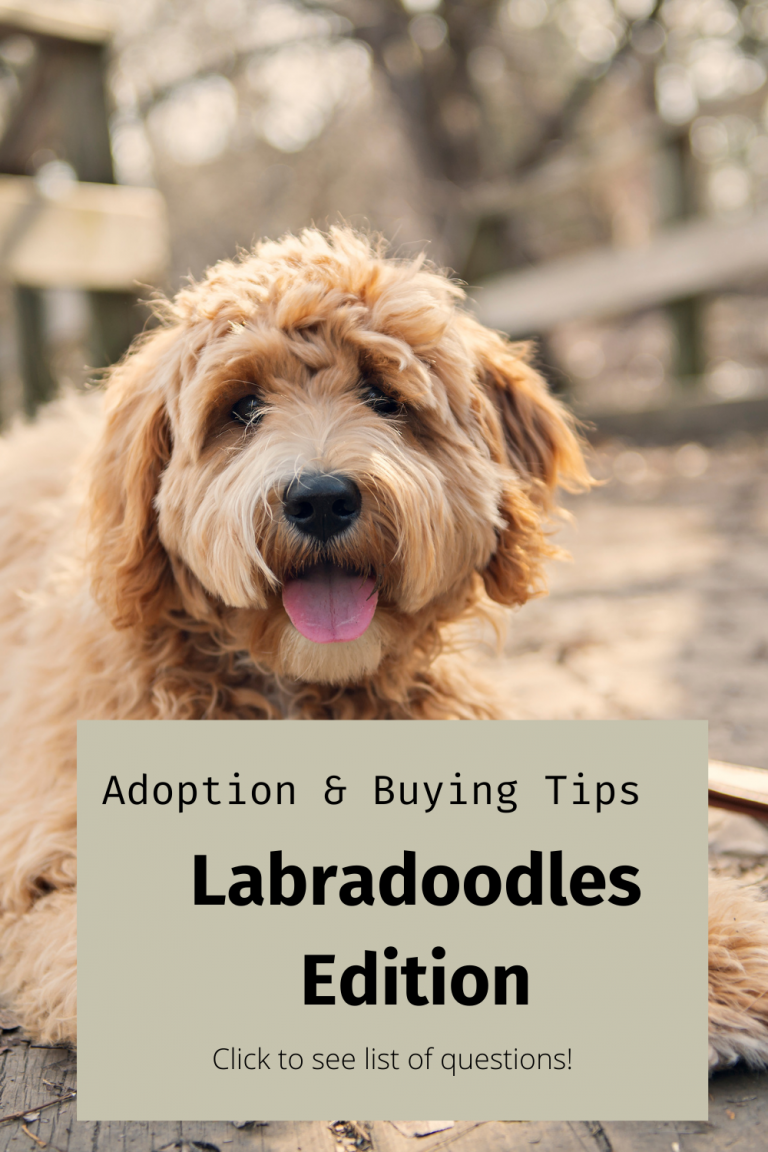
The labradoodles are playful and adorable. They are super popular and great family labradoodles. So you have decided to adopt and buy a labradoodle. With the rise of popularity of labradoodles, so has the rise of puppy mills and scammers increased. Here are some consumer protection tips and questions to ask so that you are not scammed.
Avoid Scammers
Do not send money! Anyone asking or demanding money without showing a labradoodle puppy or labradoodle, is a HUGE RED FLAG. They are most likely a scammer.
If someone asks for gas money, gift cards or a deposit without giving a picture or video of the labradoodle nor allowing you to meet the labradoodle puppy, this is a HUGE RED FLAG. They are most likely a scammer.
Don’t be over eager to get that labradoodle. If it sounds too good to be true, it likely is
Selecting the correct labradoodle breeder is important. You want to make sure the breeder is responsible, truly cares for their labradoodles, and will be a great resource throughout your labradoodle’s life. You want to make sure that you are bringing home the best puppy possible.
- Finding a good breeder is most important. A good breeder will match you with the right puppy, and will have done all the health certifications necessary to screen out health problems as much as possible.
- Consider an adult labradoodle from a shelter or a rescue group. Many of the health problems in Labradoodles aren’t apparent in puppyhood. By adopting an adult labradoodle, most of the health problems can be eliminated. In addition, Labradoodles can live 10 to 15 years, so your family and your labradoodle will have many years to make joyful memories.
- Puppy or adult, take your Labradoodle to your veterinarian soon after adoption. Your veterinarian will be able to detect health problems, and will work with you to set up a preventive regimen. Ask specifically about dental care as well as tear staining.
- Do NOT buy a puppy from a pet store. You’re more likely to get an unhealthy, unsocialized and difficult to house train puppy and will be supporting the cruelty of high-volume puppy mills.
- Make sure you have a good contract with the seller, shelter or rescue group that spells out responsibilities on both sides. In states with “puppy lemon laws,” be sure you and the person you get the labradoodle from both understand your rights and recourses.
Buying from a breeder who is smart and caring enough to do health certifications — even for a cross-breed — is the best. While there are no guarantees in life, it’s also a good way to minimize the possibility of big veterinary bills.
Have questions ready for the breeder.
A good Labradoodle breeder is more than willing to answer questions. These questions will help you assess the Labradoodle breeder.
- Ask the Labradoodle breeder why they’re selling the puppies?
Their response gives you a good idea why they are in the breeding business.Love or Money?
- Ask many specific questions about the Labradoodle breed, especially if you know the answers. This exercise indicates how knowledgeable the Labradoodle breeder really is.
- Ask what health testing has been done for the puppy. Are the puppies up-to-date on vaccinations?
Has the breeder has taken the puppy to a veterinarian and knows where he is on his shot-schedule. This will also help you so that you have the proper medical information when you bring him home and you will know what shots he needs next. - Ask what health testing has been done for the puppy’s parents.
- Ask for a written copy of the puppy’s health guarantee and make sure it’s clear regarding the warranty.
It is important to find out what kind of guarantee the breeder provides with their puppies. What happens if you find the puppy has a serious health condition? If you can no longer care for the puppy will the breeder reclaim it? - Ask the Labradoodle breeder what kind of socialization the puppy has already received. Specifically, how many people and what kinds of animals has it been exposed to. How did it react? How often is the puppy in social situations?
- Ask the Labradoodle breeder what the puppy’s diet has consisted of so far.
- Ask if the Labradoodle breeder is a member of the ILA, LLA, ALCA or listed with www.goldendoodles.com.
- Will you be able to register your puppy?
- Are the puppy’s parents registered?
- Ask the Labradoodle breeder for references. If they do not encourage or allow you to talk to previous customers, you should be concerned. Make sure to get several references.
- Ask the Labradoodle breeder if you can contact them during the life of your Labradoodle regarding any health or behavioral concerns.Ask to meet the parents.
Meeting the puppy’s parents will give you a better idea of what you can expect from your labradoodle. - Have health tests been performed on the parents?
You’ll want to be sure that the breeder has tested the parents to be sure that they are healthy and have no genetic diseases common to the breed. - How long have you been breeding? What is your experience with labradoodles?
You’ll want to know what experience the breeder has with breeding and labradoodles. - When will you be able to take the puppy home?
The breeder should tell you not to expect to bring home the puppy until it is eight to 12 weeks of age. Puppies need ample time to mature and socialize with their mother and litter mates. - How can we contact you after picking up the puppy?
The breeder should be willing to give you their contact information and encourage you to contact them with any questions or concerns you may have. Breeders are an excellent resource and breed mentor for you throughout the life of your labradoodle. - What requirements do you have of people looking to get one of your puppies?
Breeders will want to make sure their puppies are going to good homes, with people who know what to expect and have made all the necessary preparations.
These questions will keep you on the right track to choosing a good Labradoodle breeder – and thus, a healthy and happy puppy.

Information is crucial!
Whether you are adopting from the humane society or a local rescue group, it’s so important to find out as much as possible about the labradoodle you want to adopt.
Labradoodle adoption interview questions will help gather information.
The amount of information will vary. A labradoodle that is in a shelter situation may not be able to be fully assessed since it is not in a home environment.
Don’t ever feel pressured into adopting a particular labradoodle. Wait to find your perfect match as this labradoodle will be part of your family for the next 10, 15 or more years.
Labradoodle Adoption Interview Questions
- How did the labradoodle arrive in the shelter or foster home?
- How long has the labradoodle been in the shelter or foster home?
- Why was s/he surrendered?
- Where does s/he sleep at night? In his crate, labradoodle bed?
- Has s/he been to a groomer before? How did it go?
- Does s/he allow you to trim his nails, clean his ears, give him a bath?
Health Questions
- Has the labradoodle had a general wellness exam by a veterinarian? When? Does s/he have any known medical issues?
- Is the labradoodle neutered/spayed?
- Is s/he current on all vaccines? Rabies – Distemper/Parvo – Bordatella. If you adopt him, make sure to get copies of all vet records available.
- Is s/he current on heartworm and flea/tick preventative?
- Has s/he had a Snap 4 DX test? (A 4Dx snap test is a blood test that is run by a vet. While not required, it provides valuable information. The test is a screening process for six vector-borne diseases: Heartworm, Lyme, Ehrlichia canis, Ehrlichia ewingi, Anaplasma phagocytophilum and Anaplasma platys.)
- Does s/he have a Microchip?
- Does s/he have any allergies?
- Check the eyes and ears for yourself. Are the eyes clear of discharge, are the inside of the ears clean?
Potty Training Questions
- Is the labradoodle potty-trained? Don’t assume that an adult labradoodle is already potty-trained.
Does s/he have any signals to ask to go outside? - How often does s/he go outside
Energy Level Questions
- How much exercise does this labradoodle need?
- What is his typical energy level like?
- How many times a day does s/he need to be walked, and for how long?
- Does s/he relax and lay down when you are ready to stop playing?
- What are his favorite activities? (Playing fetch, swimming, frisbee, walking, running)
- Would he be a good labradoodle for going on hikes or running?
Crate Training Questions
- Is the labradoodle crate trained?
- If not crate trained, do you leave him loose when you’re not home? If so, how does he do? Any mischievous behavior?
- How does s/he act in a crate? Calm, anxious, bark?
- How do you think s/he does when left alone?
Behavior Questions
- Does the labradoodle have any guarding issues with food, toys, or anything else?
- Is s/he independent or dependent? Is he unsure or shy?
- Does s/he show any signs of separation anxiety?
- Does s/he bark excessively when left alone?
- How long can he be left home alone?
- Does s/he have any fears? (Thunderstorms, loud noises)
- Does s/he chew things such as kids toys, furniture or shoes?
- Does s/he like to play with other labradoodles?
- Is this labradoodle-friendly around other labradoodles? How does s/he act when s/he meets new labradoodles? On leash and off leash.
- Ask to see him interact with another labradoodle.
- Have you ever taken him to a labradoodle park? How did it go?
- If you have a cat, has s/he been around a cat before? How does s/he act around cats?
- Is there anything that brings out fear or aggression in him? (Bikers, strangers, men, etc.)
- How does s/he act around strangers? Is he scared, shy, aggressive, or friendly when meeting new people?
- Is the labradoodle child-friendly? Has s/he been around kids? How old are the kids?How does he act around them?
- Has s/he ever nipped, bitten or attacked anyone?
- Do you consider him a vocal labradoodle? What makes the labradoodle bark? Does s/he bark when left alone, at the doorbell, at people/labradoodles on walks?
- Is s/he calm, overly excited or scared of the car?
Training Questions
- Has the labradoodle had any formal training for behavior, obedience, hunting, agility, etc.?
- What commands does s/he know? Ask for specific words or hand signals used, this will help you understand how to interact with the labradoodle if you adopt him.
- What type of training tools have been used on him? E-collar, prong collar, etc.
- How does s/he walk on a leash? Does he walk with a flat collar, harness, prong collar, or any other tools?
- Does he pull or lunge at other labradoodles, people, cars, or bikes?
- Can I take him for a short walk? If you have another labradoodle, ask if you can walk the two labradoodles together.
- Does he have any known behavioral issues?
- Is he food motivated?
- What type of discipline works with him? A firm no, a leash correction, redirection, time-out?
Adopting the Perfect labradoodle
By asking all of these questions, you can be prepared and hopefully find a labradoodle that is a perfect match for you and your family with many years of joyful memories together.

